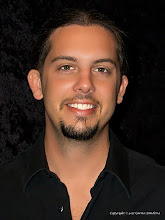How many engineers out there have used any of the listed: echo chambers, multi-band eq’s, the 1176, Universal recording consoles, or any UREI products? Well, let me answer that question, tons of us!
For those of you still in the dark about Universal Recording Electronics Industries (UREI), brought to us by “the father of modern recording,” Milton Tasker “Bill” Putnam. Born in 1920, Bill was a well-respected audio engineer, songwriter, producer, studio designer and businessman who is responsible for most of the tools we all use to produce pro-level recording sessions. Bruce Swedien, engineer on Michael Jackson’s “Thriller” and former colleague of Bill’s described his achievements by saying, “Bill Putnam was the father of recording as we know it today. The processes and designs which we take for granted – the design of modern recording desks, the way components are laid out and the way they function, console design, cue sends, echo returns, multitrack switching – they all originated in Bill’s imagination.” (mixonline, 2007)
Universal Recording in Chicago, one of America’s first independent recording studios, was founded by Bill in the 1950’s and quickly grew a reputation by recording such artists as Patti Page, Vic Damone, Duke Ellington, Count Basie, Sarah Vaughan, Little Walter, and Dinah Washington.
During this period, Universal had a number of firsts, including the first use of tape repeat, the first vocal booth, the first multiple voice recording, one of the first to use 8-track recording, the first use of delay lines in the studio, and the first release of half-speed mastered discs. (mixonline 2007) By the mid-1950’s, Putnam was one of the most sought-after engineer-producers in the United States, Universal Recording subsequently became so successful that clients, including the great Quincy Jones, began urging him to open a facility on the west coast. In the late 50’s, he sold his interest in Universal Recording and with support from Frank Sinatra and Bing Crosby established United Recording Corp. and moved to Hollywood. He began to utilize his new technologies and inventions into the new facility, expanding and re-designing the existing studios, incorporating much larger studio control rooms.
Bill was known to have tremendous foresight, in the early days when Universal Recording was founded, stereo recording was still very new and not widely excepted for major releases. Bill did however see the importance and at his own expense, he began making simultaneous stereo mixes of recordings produced at United Western and stockpiled these recordings. In the early 60’s when stereo was taking off as a consumer audio format, major labels found themselves without any back catalog of stereo recordings. This placed Putnam in the most advantageous position. Cleverly, Putnam charged for the (much more expensive) studio time used in the mixing of the stereo versions. Allen Sides, Putnam’s former partner said at the time the studio was bringing in around $200,000 per month in studio billing. In 1961, Putnam acquired Western Recorders on Sunset Boulevard, remodeled it and incorporating it into his existing complex, which he then renamed, united Western Recorders. In 1985, Putnam sold the studio to his partner Allen Sides, who then renamed it Ocean Way Recording, this is the one most people know about. There is no doubt, without Bill Putnam we wouldn’t make music the same way we have grown so accustom to. His genus is what has fueled the imaginations of many generations of engineers and even more to come in the future.
I hope this has given you some insight on where this industry has come from. If you didn’t know about Bill Putnam before reading this blog, hopefully you now know about the brilliance, ingenuity, and gusto that propelled one man at the speed of sound, on the crest of a foreign swell, barreling toward the unknown.
If you want to read more about Bill Putnam, go check out the sources I did at:
http://mixonline.com/recording/business/audio_bill_putnam_2/
http://www.freebase.com/view/en/bill_putnam
http://www.uaudio.com/about/our-story
Pictures from www.uaudio.com, 2011
Subscribe to:
Post Comments (Atom)
Subscribe Now
Subscribe via email
Who is Mike Lancaster?

- Mike Lancaster
- I am a drummer and percussionist with twenty-three years experience and a audio engineer. Now I am finishing my Graduate studies for Entertainment Business. I have a Bachelor's Degree in Recording Arts from Full Sail University and I look forward to what life has in store for me in the next years.
What is The Summing Amp?
The Summing Amp is an interactive blog especially for audio engineers and audiophiles in general. I hope everyone who visits will receive something from the blog, but it is geared for professionals in the audio and entertainment industries. I wish to "sum" the information I have in my person and find in my studies onto one stream for my followers. I also wish to have my followers interact with me and the other followers, sharing information and tricks of the trade. I wish most of all to reach the best and the brightest of the industry and share my love for recording, performing, and producing entertainment of many different mediums.



No comments:
Post a Comment